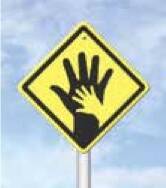In “The Joy of the Gospel,” Pope Francis proclaims that the church must be a place “where everyone can feel welcomed, loved, forgiven and encouraged to live the good life of the Gospel.” In a world troubled by violence, the church, of all places, must serve as a sanctuary for children, the most vulnerable members of the human family. Yet a report by the United Nations Committee on the Rights of the Child released on Feb. 5 expressed grave concern that the Catholic Church has not yet acknowledged the full extent of sexual abuse of young people by members of the clergy and has not done enough to protect them.
The report, as many commentators have pointed out, has some serious flaws. The committee and the church share a concern for protecting children from violence, sexually transmitted diseases and dangerous pregnancies, but we strongly disagree over some of the means and ends. The report chastised the church, for example, for failing to protect children from the “unacceptable” violence of corporal punishment, although the United Nations fails to recognize a moral duty to protect innocent children from the violence of abortion.
Some Catholic voices have called for the Holy See to withdraw from the convention. The Holy See has rightly rejected this course of action. On Feb. 7 the Vatican acknowledged that some of the criticisms in the report are justified and promised to “continue its commitment” to the U.N. Convention on the Rights of the Child, which the Holy See has signed and ratified. (The United States and Somalia are the only U.N. members that have not ratified the convention.)
The church in recent years has taken significant steps to protect and promote the well-being of children. Pope Benedict XVI insisted that church officials follow civil laws for reporting sexual abuse, encouraged “zero tolerance” for offenders and backed this up by laicizing nearly 400 priests in sexual abuse cases during the last two years of his papacy. In the United States every diocese has implemented safe environment training programs, and the number of abuse cases has fallen dramatically.
The U.N. report points out that policies and practices like these have not been adopted everywhere in the church. The Holy See should use its spiritual and canonical authority to promote the principles of the convention in every Catholic institution throughout the world.
The church needs to listen carefully to many of the observations and recommendations in the report. The U.N. commission invites the church, which has appropriately focused on “cleaning its own house,” to broaden its efforts by implementing programs to help prevent sexual abuse in the homes of Catholic families. The report rightly recommends that the church replace the canonical term “illegitimate children” with language that better reflects the dignity of each child.
As a moral leader, the church everywhere should also “condemn all forms of harassment, discrimination or violence against children based on their sexual orientation or the sexual orientation of their parents.” The church universal should also advocate for the decriminalization of homosexuality. Far from conflicting with Catholic teaching, this commitment embodies our belief that gay persons should be treated with “respect, compassion, and sensitivity” and that “every sign of unjust discrimination” should be avoided.
Perhaps most significantly, the United Nations is right to call for “a transparent sharing of all archives which can be used to hold the abusers accountable as well as all those who concealed their crimes and knowingly placed offenders in contact with children.” As revelations of abuse continue to trickle out of various U.S. dioceses, Catholics understandably wonder if more church leaders will take responsibility for their mistakes. Will more church leaders be held to account and subject to civil penalties for decisions that endangered, even if unintentionally, the lives of children?
In his Lenten message, Pope Francis said the season is a “fitting time for self-denial” and that he distrusts a charity that “costs nothing and does not hurt.” It may pain some in the church to grant any moral authority to a U.N. document that is indeed hostile to core aspects of Catholic teaching, but such a penance pales beside the enormity of the sin committed in the sexual abuse of children and its cover-up. Cardinal Sean P. O’Malley, O.F.M.Cap., of Boston recently told The Boston Globe that the new Vatican commission on sexual abuse should implement standards for holding bishops accountable. We agree.
Pope Francis has not yet spoken at length about the sexual abuse crisis. Lent is an appropriate time for him to publicly acknowledge the failures in church governance and to ensure the timely implementation of those U.N. recommendations that promote the genuine welfare of children.








